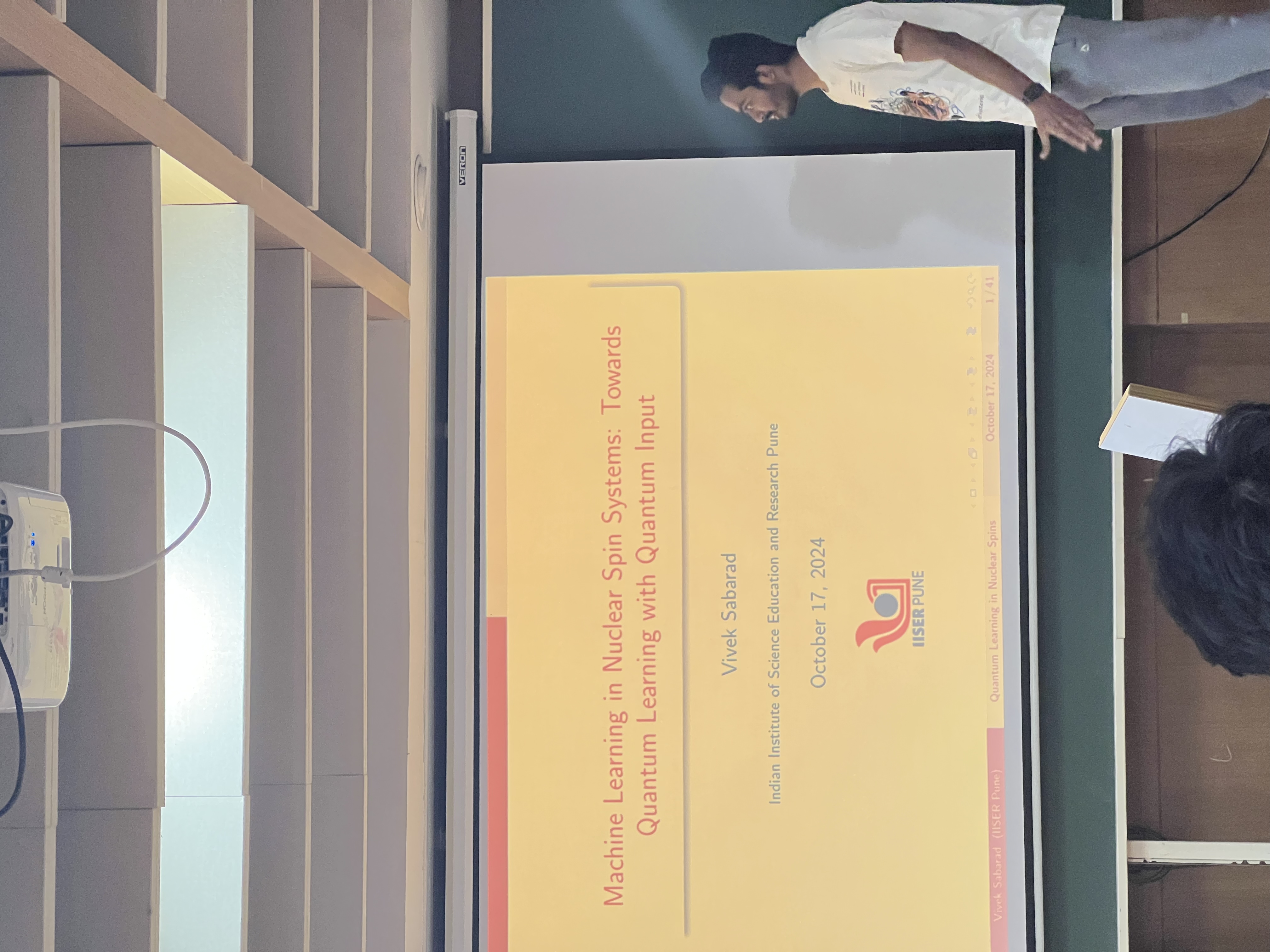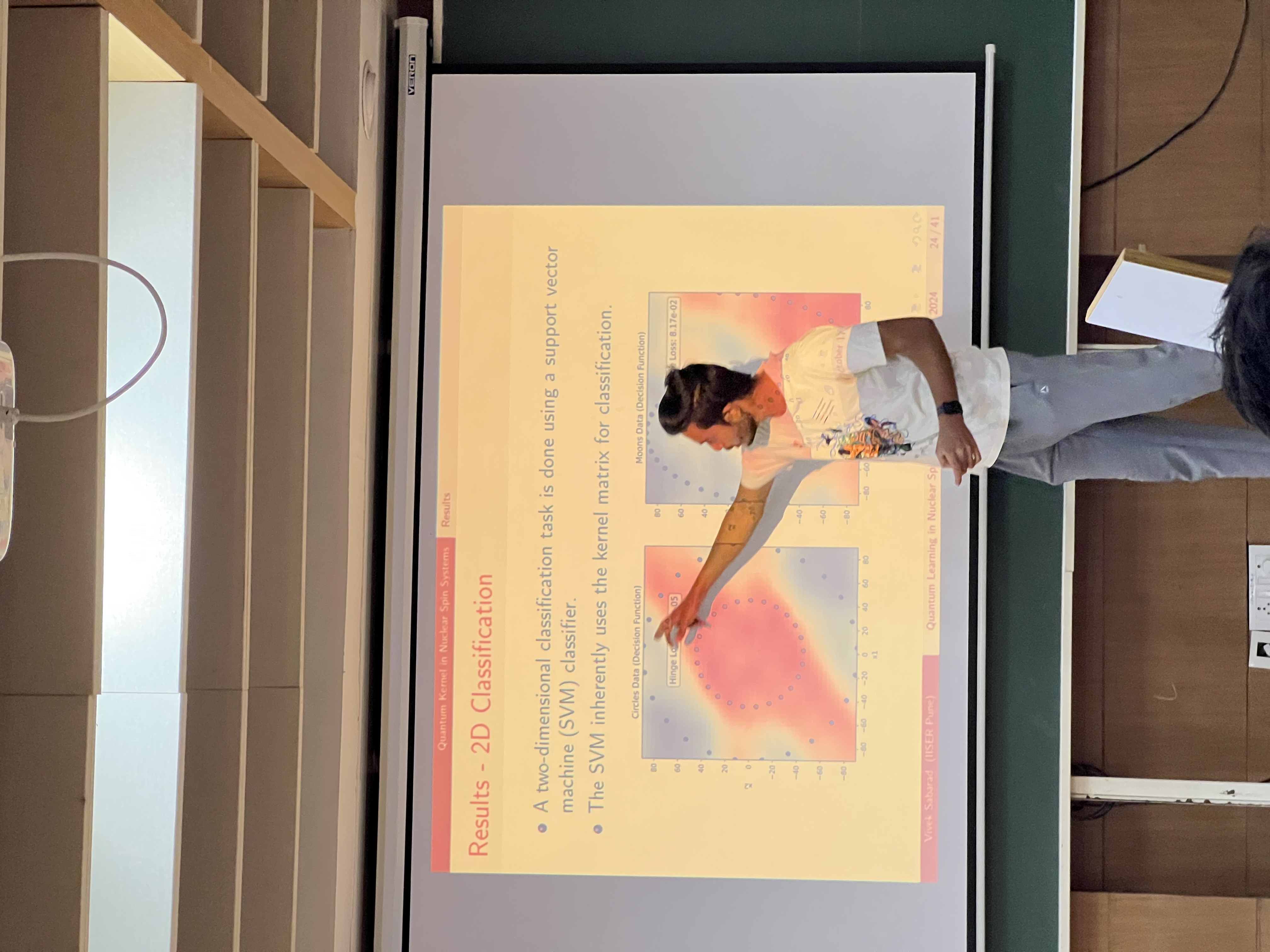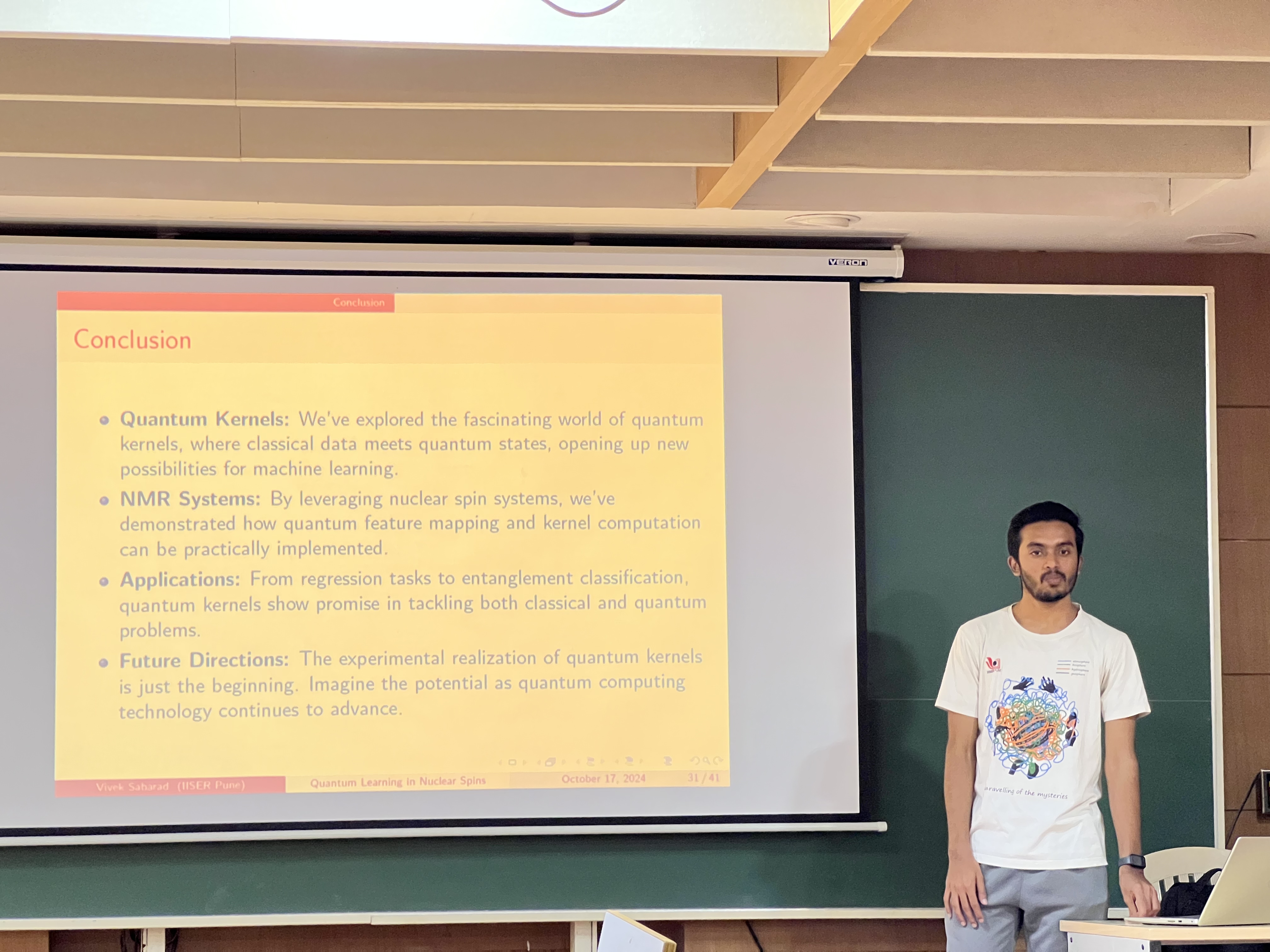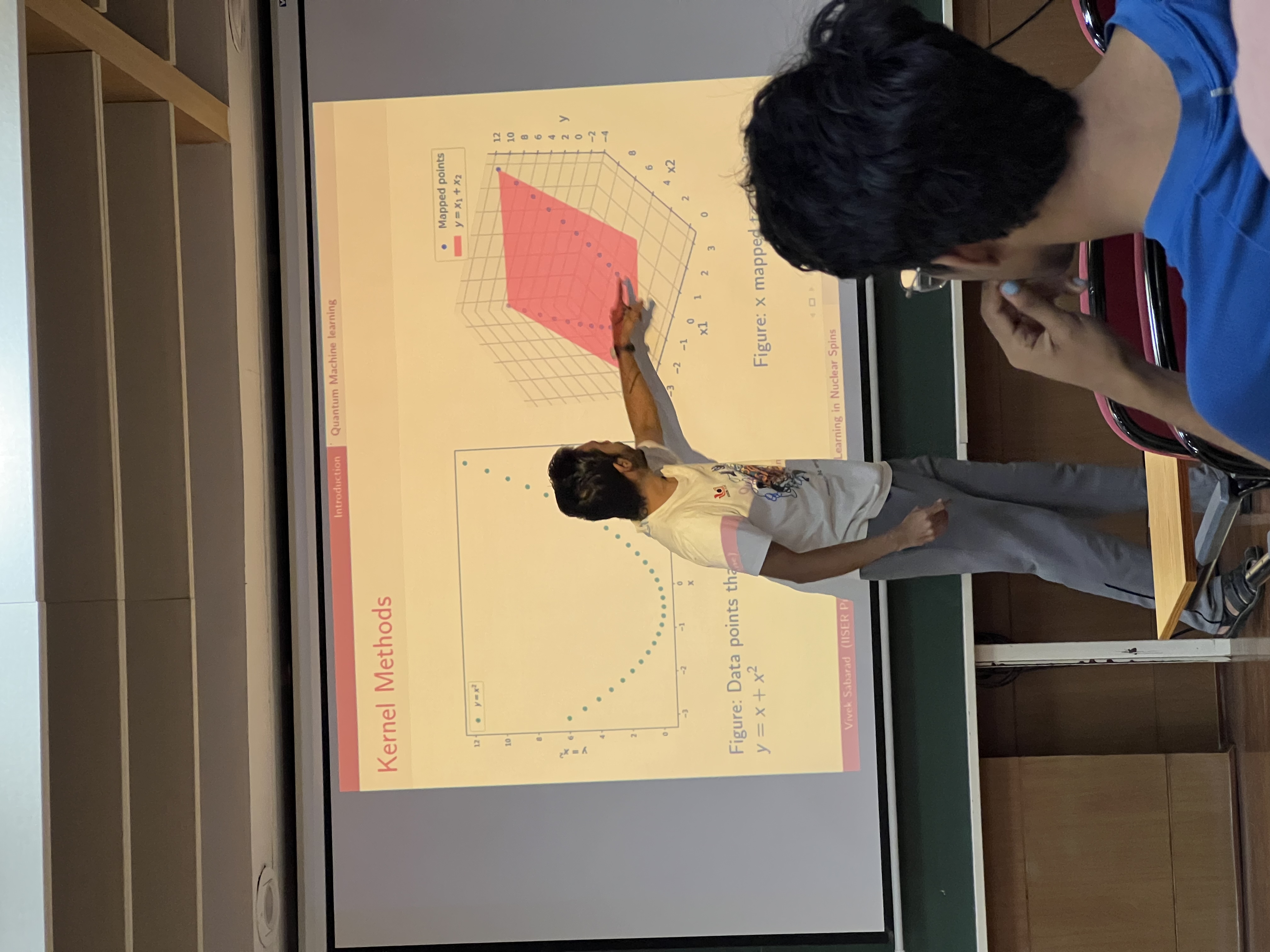Machine learning is a powerful tool for analyzing complex datasets, but its application to quantum systems presents unique challenges. Kernels, which measure the similarity between data points, are a key component of many machine learning algorithms. Quantum kernels offer the potential to extend the idea to quantum data that are inaccessible to classical kernels. This talk presents an experimental realization of quantum kernels using Nuclear Magnetic Resonance (NMR) quantum computers, highlighting its significance as a step towards quantum learning with quantum data as input. A basic understanding of quantum mechanics is necessary to grasp the concepts presented in this talk. Familiarity with classical machine learning aspects would be beneficial but not required.
The first part of the talk with focus on the idea of kernel in machine learning. Thereafter, I will go on to introduce quantum kernels and talk about why they can potentially enhance the machine learning algorithms involving kernel methods. The second part of the talk will focus on the experimental implementation of these kernels using nuclear spin systems. This involves encoding classical data into the quantum states of nuclear spins and subsequently computing the quantum kernels using NMR techniques. While this demonstration utilizes classical data, it establishes a foundation for applying similar techniques to process quantum inputs, thus enabling the classification of quantum states. To end with, I will introduce quantum kernels designed for entanglement classification, showcasing their ability to differentiate between entangled and non-entangled states.
Attendees will gain insight into the essentials of kernel methods in machine learning, the experimental realization of quantum kernels and their potential in processing quantum input data.



